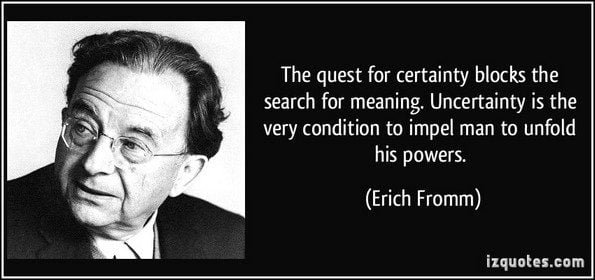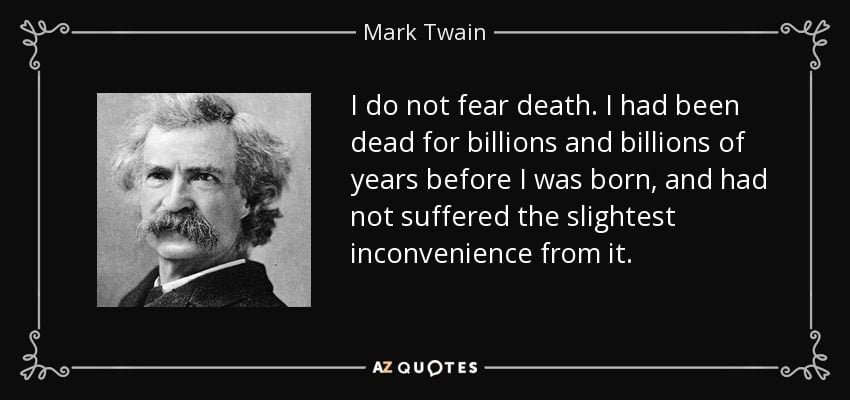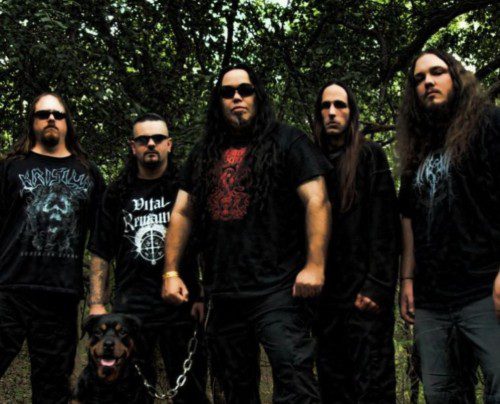
I spent several hours on Sunday playing around with ChatGPT. I asked the AI several questions, and what follows are the responses it gave me. I am astounded by how accurate its responses were. My corrections of the AI are found in [ ].
Who is Bruce Gerencser?
Gerencser is a former Christian pastor and writer who is known for his blog “The Life and Times of Bruce Gerencser.” He was a pastor in the Independent Fundamentalist Baptist (IFB) denomination for many years before leaving the ministry and eventually becoming an atheist. [I didn’t remain in the Independent Fundamentalist Baptist church movement, leaving in the late 1980s, eighteen years before I deconverted.]
Gerencser’s blog explores a wide range of topics related to religion, including his own experiences as a pastor, his journey from faith to atheism, and his critiques of various religious beliefs and practices. He is also a vocal advocate for the separation of church and state, and frequently speaks out against the influence of religion in politics.
Gerencser’s writing has been featured in a number of publications, including The Washington Post, The Huffington Post, and Patheos. He has also published several books, including “I’m a Christian and I’m an Atheist: A Memoir of God and Social Justice” and “The Bible and the Closet: How I Lost My Faith and Found Myself.” [I have not published any books. I am quoted in numerous books.]
Who is Polly Gerencser?
Polly Gerencser is the wife of Bruce Gerencser. Like her husband, she was also a devout Christian and a member of the Independent Fundamentalist Baptist (IFB) denomination. However, she eventually left the church and became an atheist. [Polly didn’t remain in the IFB church movement either.]
Polly has written about her own experiences with Christianity and her journey away from it on her blog, “Leaving Fundamentalism.” She has been open about the emotional and psychological toll that leaving her faith has taken on her, including the loss of friendships and strained relationships with family members who remain devout believers. [Polly has written very little about her experiences. She sat for some questions years ago and is featured frequently and prominently in my story.]
Along with her husband Bruce, Polly has been a vocal advocate for the separation of church and state and a critic of the harmful aspects of fundamentalist Christianity. Together, they have written and spoken extensively about their experiences and their perspectives on religion and secularism.
Is Bruce Gerencser an Atheist?
Yes, Bruce Gerencser is an atheist. He was previously a Christian pastor and missionary, but he eventually left the ministry and renounced his Christian faith. Since then, he has been a vocal critic of Christianity and organized religion in general, and has written and spoken extensively about his experiences and his perspectives on religion and secularism.
In his writing and speaking, Gerencser has been open about the emotional and psychological toll that leaving his faith has taken on him, including the loss of friendships and strained relationships with family members who remain devout believers. However, he has also expressed a sense of liberation and a renewed commitment to living a life based on reason, evidence, and compassion.
Is Bruce Gerencser a Christian?
Bruce Gerencser is a former Christian pastor and writer who now identifies as an atheist. He has publicly stated that he no longer believes in the existence of God or the truth of Christian doctrine. Therefore, it would not be accurate to describe him as a Christian.
Is Bruce Gerencser a Conservative?
Bruce Gerencser was a conservative Christian for many years, and he served as a pastor in conservative churches for over 25 years. However, he has since undergone a significant change in his political and religious views, and he now describes himself as a progressive, liberal, and humanistic thinker.
Gerencser has been open about his evolution in thought, and he has written extensively about his journey from conservative Christianity to progressive humanism. He now advocates for a more inclusive, tolerant, and compassionate approach to religion and politics, and he is highly critical of many conservative and fundamentalist views and practices. Overall, while Gerencser has a background in conservatism, his current beliefs and values reflect a more progressive and liberal perspective.
Bruce Gerencser, Separation of Church and State
Bruce Gerencser is a strong advocate for the separation of church and state. He believes that the government should not favor or endorse any particular religious belief or practice, and that individuals should be free to practice their religion or hold no religious beliefs without interference or coercion from the government.
Gerencser has been critical of many conservative and fundamentalist Christians who seek to impose their religious beliefs on others through legislation or government action. He believes that such efforts are unconstitutional and violate the principles of religious freedom and equal protection under the law.
Gerencser has also been a vocal critic of public schools that promote religious beliefs or practices, arguing that such actions violate the separation of church and state and are unfair to students who do not share those beliefs. He supports a secular education system that is inclusive of all beliefs and backgrounds and does not favor any particular religion.
Overall, Gerencser believes that the separation of church and state is a fundamental principle of American democracy, and he works to promote and defend this principle through his writing and activism.
What Does Bruce Gerencser Think About Donald Trump?
Bruce Gerencser has been highly critical of Donald Trump, both during his presidential campaign and throughout his time in office. Gerencser is a progressive and liberal thinker who opposes many of Trump’s policies and views, and he believes that Trump’s presidency was detrimental to the United States and to the world.
Gerencser has been particularly critical of Trump’s rhetoric and behavior, which he believes are divisive, cruel, and unethical. He has also been critical of Trump’s policies on immigration, healthcare, the environment, and other issues, arguing that they prioritize the interests of the wealthy and powerful over the needs of ordinary people.
Gerencser has been a vocal advocate for political and social justice, and he believes that Trump’s presidency represented a setback for these values. However, he has also expressed hope that Trump’s defeat in the 2020 presidential election represents an opportunity for the United States to move forward and build a more inclusive, compassionate, and equitable society. Overall, Gerencser believes that Donald Trump’s presidency was a negative force in American politics and that his legacy will be one of division, corruption, and extremism.
Bruce Gerencser, Leaving Christianity Story
Bruce Gerencser is a former Independent Fundamentalist Baptist (IFB) pastor who left Christianity and became an atheist. He has shared his story of leaving Christianity on his blog and in other public forums.
Gerencser grew up in an IFB family and became a pastor himself, serving in various IFB churches for over 25 years. [I pastored four non-IFB churches.] However, over time, he began to question the teachings and practices of the IFB movement, particularly its strict rules and lack of accountability. He also became troubled by the prevalence of abuse and misconduct within the movement and the way these issues were often covered up or ignored by church leaders.
As Gerencser continued to explore his doubts and questions, he eventually came to the conclusion that he no longer believed in the existence of God or the truth claims of Christianity. He resigned from his position as pastor and publicly announced his deconversion on his blog in 2008. [I actually left the ministry in 2005, three years before I deconverted.]
Since then, Gerencser has become a vocal critic of the IFB movement and of Christianity more broadly. He has spoken out against the abuses and harms he believes are perpetuated by religion and has advocated for greater transparency and accountability within religious communities. He has also written about his own personal journey of leaving Christianity and the challenges and opportunities that come with this transition
Independent Fundamentalist Baptist Church Movement
The Independent Fundamentalist Baptist (IFB) church movement is a subset of Baptist Christianity that emphasizes the authority and inerrancy of the Bible, the need for personal conversion and salvation through faith in Jesus Christ, and separation from the world and from other Christians who do not share their beliefs and practices.
The IFB movement emerged in the mid-20th century as a reaction against what some perceived as the liberalization and compromise of mainstream Baptist denominations. IFB churches often have strict rules and standards of conduct for their members, including dress codes, prohibitions on secular entertainment and activities, and strong emphasis on evangelism and Bible study.
Critics of the IFB movement have raised concerns about its authoritarian leadership, lack of accountability, and the prevalence of abuse and misconduct within some IFB churches. In recent years, there have been several high-profile cases of abuse and cover-up within IFB churches, leading to increased scrutiny and calls for reform within the movement.
It is worth noting that not all Baptist churches or Christians identify as IFB, and that there is a wide diversity of beliefs and practices within the broader Baptist tradition.
Bruce Gerencser, 66, lives in rural Northwest Ohio with his wife of 45 years. He and his wife have six grown children and thirteen grandchildren. Bruce pastored Evangelical churches for twenty-five years in Ohio, Texas, and Michigan. Bruce left the ministry in 2005, and in 2008 he left Christianity. Bruce is now a humanist and an atheist.
Connect with me on social media:
Your comments are welcome and appreciated. All first-time comments are moderated. Please read the commenting rules before commenting.
You can email Bruce via the Contact Form.










